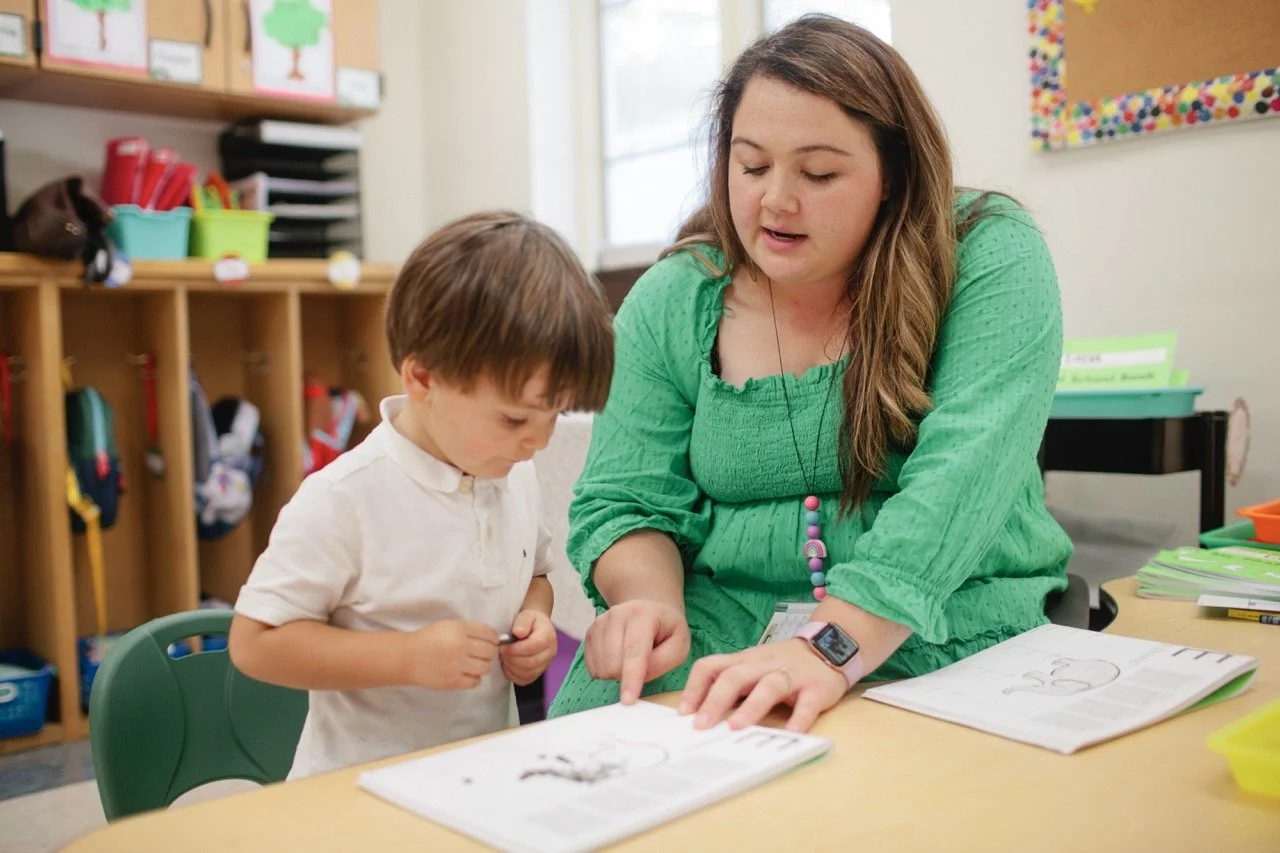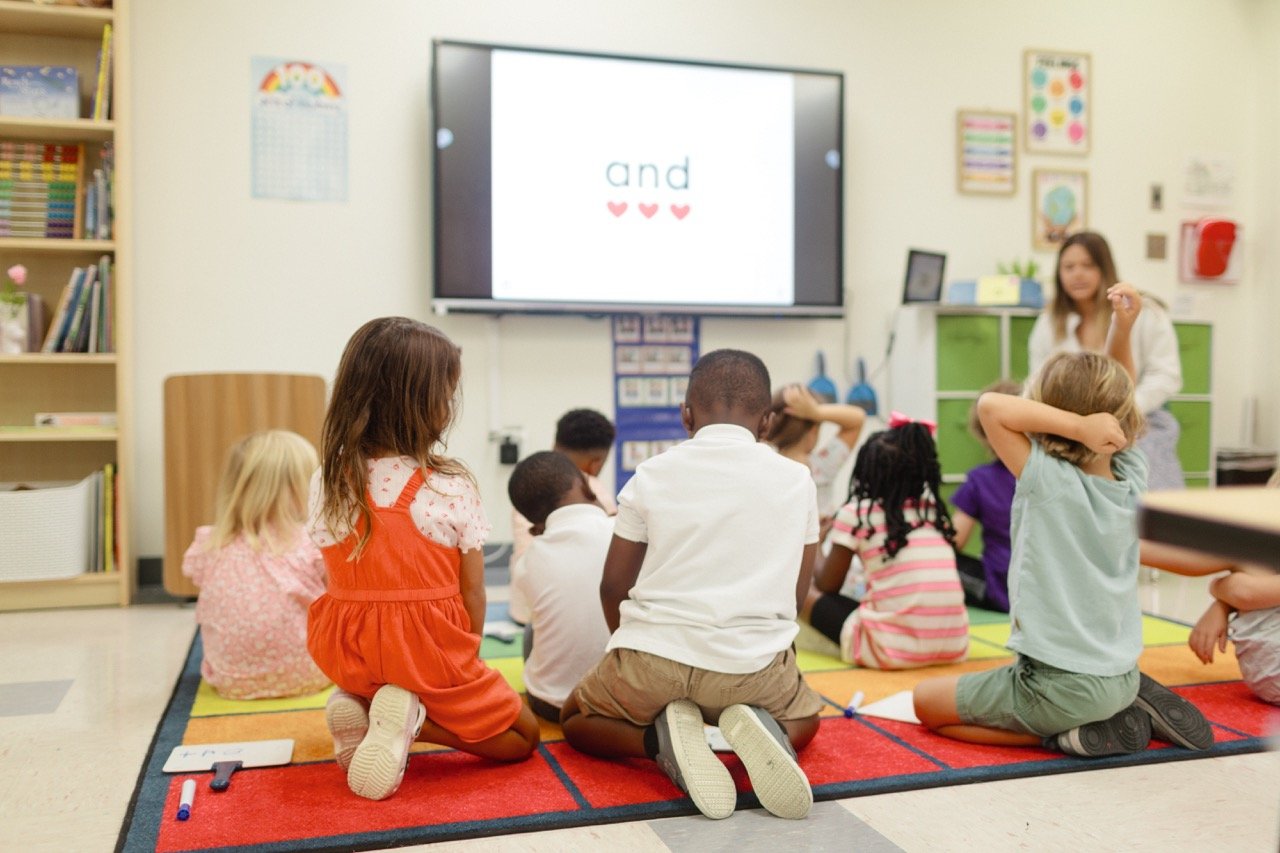Academic Learning Spotlight: The Science of Reading
Heggerty and Phonics First: Building Blocks for Early Literacy
In our early childhood elementary program, we believe that a strong foundation in phonemic awareness and phonics is essential for early literacy development. To support this, we use two programs: Heggerty and Phonics First. Together, these programs provide our Pre-K and Kindergarten students with the tools they need to become confident, capable readers.
The Heggerty and Phonics First programs form a comprehensive literacy curriculum in Pre-K and Kindergarten, focusing on building essential reading skills. Heggerty emphasizes phonemic awareness, the ability to recognize and manipulate sounds in spoken words, a foundational skill for reading. Each 10-15 minute Heggerty lesson is fun and interactive, engaging students through hand motions, songs, and movements. These activities feel like games to young learners, making phonemic awareness enjoyable. A popular classroom activity, for example, involves jumping to divide compound words, adding a physical element to the learning process.
“My students really enjoy our Heggerty lessons because they see the activities as games! We use hand motions, songs, and movements to keep it fun and engaging. Their favorite activity is when we incorporate jumping to divide compound words!”
- Abby Martin, PreK Teacher
While Heggerty builds a foundation of sound recognition, Phonics First takes students to the next step by teaching them how to connect sounds with letters. Phonics First is a structured, multi-sensory program that helps students learn the mechanics of reading by decoding words. It is effective for all learners, from those who don’t yet recognize letters to those who are already beginning to read. Phonics First helps students progress from memorizing words to mastering the ability to sound out new words, essential for reading fluency.
“In Kindergarten, students are learning the mechanics of reading. Phonics First gives them the structure they need to learn how to read. Even kids who come in reading in Kindergarten, have often just memorized words so we teach them how to read new words with Phonics.”
- Ali Burton, Kindergarten Teacher
Together, Heggerty and Phonics First align to create a well-rounded literacy approach. Heggerty sharpens listening skills and prepares Pre-K students by fostering early phonemic awareness. In Kindergarten, Phonics First builds on this foundation by introducing letter-sound relationships and guiding students through the process of reading.
By combining these two programs, students develop the skills necessary for reading success, setting them up for continued academic growth.


